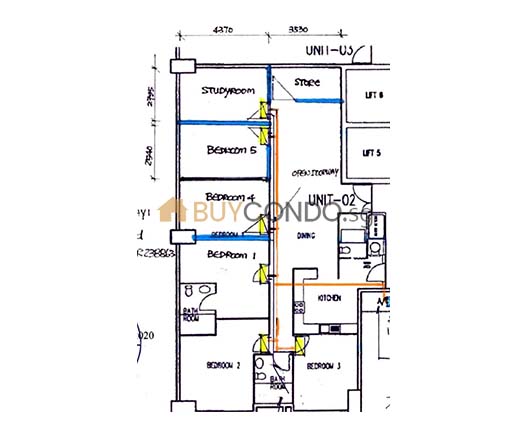Property Agents and Property Management Roles
Are property agents and property managers alike, just different faces of the same job? Or are they truly different fields with their own unique roles? Let’s explore the real estate world. We’ll find out how close or far apart these two professions really are.
Property agents and property managers are both crucial in the industry. But, it’s amazing to see how their duties and what they’re good at vary. Even though they both work with properties, their roles are quite different. Yet, they work together in important ways.
Key Takeaways: Property Agents and Property Management Roles
- property agents and property managers have varying roles in real estate.
- Property management deals with the daily care of properties, while agents focus on selling.
- Property managers work in different property types, like homes or commercial spaces.
- Real estate agents can enter property management, but it needs different skills.
- Both jobs need special training and licenses, which can differ by state.

The Intersection of Property Agents and Property Management
Real estate agents and property managers are vital in the real estate world. They each have specific job roles. Agents help people buy and sell properties. Managers take care of the property’s daily needs. Despite some similar tasks, their skills are different.
Real estate agents are key in linking buyers and sellers. They guide clients through property sales. Agents do market research, show homes, and negotiate. They ensure deals go smoothly and give important advice.
Property managers handle the upkeep of properties. They choose tenants, set up leases, collect rent, and maintain the property. They focus on keeping the property’s value high and tenants happy.
Agents deal with selling properties, while managers oversee their operations. Agents use marketing and negotiation to close deals. Managers use organization and problem-solving for day-to-day tasks.
Both need to know the latest about real estate and its laws. They should always improve their skills to help clients and manage properties well.
In the end, agents and managers have different but related roles. Agents sell, and managers maintain properties. Both need expertise and hard work to help the real estate market thrive.
Understanding the Scope of Property Management
Managing properties covers many tasks. It handles the daily upkeep and operation of places like homes, offices, or factories. Property managers are key to keeping these places valuable and running well.
What Is Property Management?
Property management is the overseeing of real estate for its owners. It includes finding good tenants, making contracts, collecting rent, and keeping up with laws. Managers make sure renters and owners are happy by running things smoothly.
Owners can trust a professional team to handle their property’s everyday needs. This way, they have more time for other parts of their life or work. Their properties stay in top shape and bring in steady money.
Key Responsibilities of Property Managers
Managers have important jobs to do. They look after finding and keeping good tenants, making sure the property stays nice and safe, taking care of the finances, and attracting new renters. They also must keep up with legal rules.
- Tenant Management: They find and pick renters, and keep everyone happy. They handle any problems that pop up.
- Property Maintenance and Repairs: They make sure the space is always safe and nice. This means arranging for fixes and regular upkeep.
- Financial Management: They deal with the money side, such as collecting rent and managing the budget. Owners get their money on time.
- Marketing and Leasing: They work to keep the property rented. This means advertising, showing the space to possible renters, and making lease deals.
- Legal Compliance: They follow all the laws so the property operates correctly. They stay informed about legal changes, fill out the right paperwork, and meet all regulations.
Different Property Management Specializations
Not all property management is the same. The focus can change based on the type of property. For example, some managers work with homes, some with stores, and some with big warehouses.
- Residential Property Management: This type deals with homes and apartments. Managers here handle finding tenants, collecting rent, and looking after the place.
- Commercial Property Management: This focuses on workplace buildings and stores. Managers make sure spaces are rented, taken care of, and run smoothly.
- Industrial Property Management: This involves managing big work areas, like warehouses. Managers of these properties also handle special needs like zoning and environmental rules.
- Special-Purpose Property Management: Some properties, like vacation homes or schools, need special managers. They understand the unique needs of these places.
Illustration of Property Management Specializations
| Specialization | Description |
|---|---|
| Residential Property Management | Focuses on managing residential properties, such as single-family homes, apartments, and condominiums. |
| Commercial Property Management | Deals with managing commercial properties, including retail centers, office complexes, and industrial spaces. |
| Industrial Property Management | Specializes in managing industrial properties, such as warehouses, manufacturing facilities, and distribution centers. |
| Special-Purpose Property Management | Handles unique or specialized properties, such as resorts, senior care facilities, educational institutions, and vacation rentals. |
Can Property Agents Do Property Management?
Property agents may also manage properties. Yet, the skills for this job are not the same as selling homes. Some may do both, but others stick to just selling.
Qualifications and Licensing: Bridging the Two Professions
Real estate agents and property managers must meet certain qualifications and get licenses.
State Regulations and Licensing Requirements
To become a real estate agent, you usually take courses, pass a test, and do more training. Property managers have their own set of rules, which might include additional certifications beyond the standard requirements.
In Singapore, if you want to be a real estate salesperson, you must pass the RES exam by CEA. You also must be registered with a licensed agent.
The Importance of Cross-Disciplinary Expertise
Knowing about both real estate sales and property management helps professionals do their job better. It gives them a deeper understanding of the real estate world.
A real estate agent who understands property management can do more for their clients. They can handle things like leasing and managing properties. This know-how can grow their business and meet more of their clients’ needs.
Property managers with sales knowledge can guide buying and selling investments. They bring insights about the market and how properties gain value. A well-rounded view helps their clients succeed in real estate.
This mix of skills and knowledge makes professionals a go-to for advice. It builds their trust with clients who want someone with a broad understanding of real estate.
Residential vs. Commercial Property Management: A Comparative Analysis
Residential and commercial property management are distinct in the property management field. They handle different types of real estate and have unique goals.
Residential property management focuses on homes where people live. This includes places like apartments, condos, and houses. Managers handle finding and checking tenants, sorting out leases, collecting rent, and looking after the properties.
Commercial property management is about places for business. It might be shops, offices, or factories. Managers face different tasks like dealing with business tenants, setting lease deals, and meeting business needs.
Both types of managers do some of the same jobs, but their day-to-day work varies. Residential managers aim to make places nice for residents. Commercial managers work to fill spaces, keep the property’s value high, and please business tenants.
Both fields need special skills to deal with their particular challenges. If you want to know more about how they differ, check the table below:
| Comparison | Residential Property Management | Commercial Property Management |
|---|---|---|
| Property Types | Apartments, condominiums, single-family homes | Retail spaces, office buildings, industrial facilities |
| Tenant Base | Individuals and families seeking residential accommodation | Businesses and organizations |
| Focus | Creating comfortable living environments, tenant satisfaction | Maximizing occupancy rates, maintaining market value, tenant satisfaction within a business context |
| Lease Agreements | Residential lease agreements | Commercial lease agreements |
| Challenges | Tenant turnover, maintenance of residential amenities | Business-specific needs, negotiating lease terms, maintaining property appeal within a commercial market |
This comparison sheds light on how different residential and commercial property management are. Each has its own set of challenges that need certain skills to tackle. It’s key to understand the unique qualities of each to be successful.
Site Management: The Heart of Day-to-Day Operations
Site managers are key to property operations, ensuring everything runs smoothly. They keep tenants happy and maintain management standards. Site Management
Roles and Duties of a Site Manager
Site managers have a big job that includes many tasks. They make sure things are running well day to day. This involves:
- Dealing with tenant relations and any problems that come up
- Handling rent collection to make sure it’s done on time
- Lining up property fixes and maintenance
- Doing lease deals and managing renewals
- Keeping up with local laws and regulations
They are the key people tenants speak to about their concerns and needs. Site managers also handle lease agreements and the property’s finances. They are the main connection point for the people living on the site.
Maintenance, Documentation, and Regulation Compliance
Maintaining the property is crucial, and that’s on site managers. They organize repairs and regular checks to keep the place tip-top. Maintenance
Site managers also make sure all the paperwork is correct and up to date. They keep tenant details, repair checks, maintenance logs, and financial records straight. This helps keep things in order.
Making sure the property follows all laws is another big part of their job. Site managers are on top of local rules and regulations. They handle safety codes, land use rules, and other legal must-dos. It’s part of their job to keep the property legal and safe.
Site managers are crucial for managing properties well by keeping daily activities in order. They make sure tenants are happy and the property follows the law. Their work is key to good property management.
From Property to Portfolio: The Role of a Regional Manager
Regional managers in property management have a key role. They oversee many properties in a certain area. This makes their job more complex than site managers’. They are vital for making sure a property portfolio runs smoothly.
They lead site managers and help them meet their goals. They make sure all properties operate in a similar way. This helps the overall success and profit of the portfolio.
Regional managers are also in charge of property managers. They ensure the properties meet high maintenance and tenant satisfaction standards. They connect the property owners and the on-site teams. This makes communication and problem-solving work better.
| Responsibilities of a Regional Manager | Skill Set |
|---|---|
| 1. Portfolio Management: Overseeing multiple properties, ensuring their operational and financial success. | Leadership: Ability to provide direction, guidance, and support to property managers. |
| 2. Performance Management: Setting goals, monitoring performance, and implementing strategies to optimize property performance. | Communication: Effective interpersonal and communication skills to liaise with various stakeholders. |
| 3. Budgeting and Financial Analysis: Ensuring financial stability, identifying growth opportunities, and maximizing profitability. | Analytical: Strong financial acumen and the ability to analyze market trends and data. |
| 4. Property Evaluation and Acquisition: Identifying potential properties for expansion and evaluating their investment potential. | Strategic Thinking: Visionary mindset and the ability to plan for future growth and ROI. |
Regional managers help the real estate business grow. Their knowledge of property management, strong leadership, and strategic planning skills are invaluable.
Asset Management: Maximizing Property Value for Owners
Asset management is key in real estate. It focuses on managing properties to boost their value for owners. This includes financial care and smart planning.
Financial Management of Real Estate Assets
Managing finances is essential for asset management. Property managers ensure the money side of properties runs well. This is important for the properties to succeed.
Budgeting is a big part of this. Managers create plans to use money wisely. They also provide clear and honest financial reports to the owners.
Collecting rent on time is also critical. Managers make sure rent is paid when it should be. They also watch spending closely to keep things profitable.
Deciding where to invest is part of managing finances too. Managers look at where to put money for the best gain. They check out new places to buy and think about selling old ones.
Strategic Decision Making for Long-Term Appreciation
Making smart choices is crucial for a property’s long-term value. Managers consider what’s best for the owner and the market. They plan for how to make the property better over time.
Improving the property is one strategy. Managers work on what can make the property more attractive and valuable. This might mean fixing it up or making it greener.
Picking the right tenants is another key. Managers select renters who will take good care of the place. This reduces empty times and helps the property stay valuable.
Deciding lease terms is also important. Managers set up leases that protect the owner and work well for tenants. They decide on price, how long the lease is, and when payments are due.
Keeping an eye on the market is a must too. Managers watch market trends to set prices and plan how to find new tenants. This steps help keep the property valuable and competitive.
Thanks to smart financial and market choices, property managers help properties grow in value over time.

| Benefits of Asset Management | Financial Management | Strategic Decision Making |
|---|---|---|
| Maximizes property value | Optimizes budgeting | Enhances property appeal |
| Increases ROI | Efficient rent collection | Optimizes tenant selection |
| Minimizes vacancies | Controls expenses | Improves lease agreements |
| Improves tenant satisfaction | Provides accurate financial reporting | Aligns with market trends |
Conclusion
In the real estate world, agents and managers play key roles, each with its own set of tasks. Yet, they often share similar duties. Both work with clients, making their transactions smoother.
Having knowledge of both sales and managing properties helps professionals stand out. It lets them handle many tasks and offer better services. This diverse skill set is a strong advantage in the industry.
Property management covers a wide range of tasks, crucial for properties to run well. Managers oversee everything from daily tasks to long-term strategies. They make sure tenants are happy and properties are well-kept, supporting the value of real estate.
FAQ
What is the difference between a real estate agent and a property manager?
What does property management involve?
Are there different specializations within property management?
Can real estate agents also do property management?
What is the difference between residential and commercial property management?
What are the roles and responsibilities of a site manager in property management?
What is asset management in property management?












